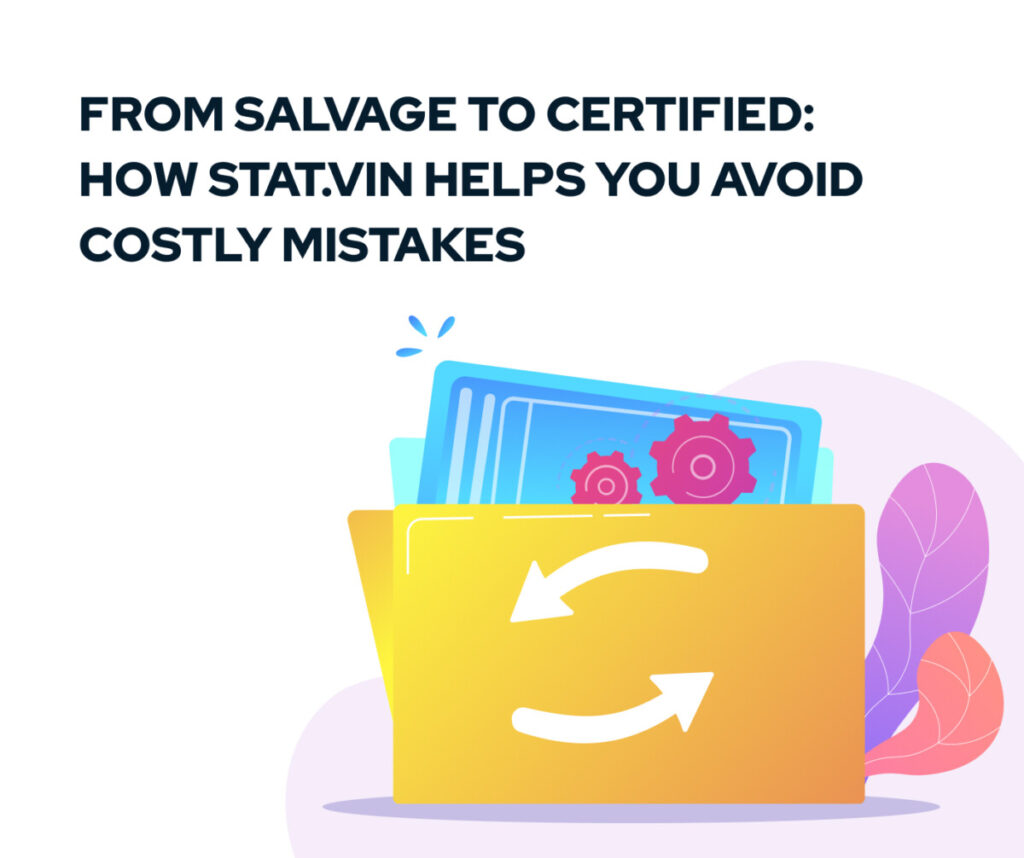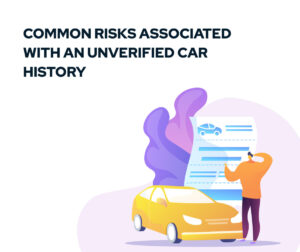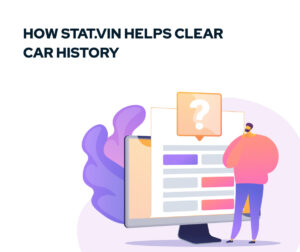When buying or selling a used car, hidden accident records and unclear ownership can lead to serious financial losses. That’s why using tools like stat.vin is essential. This platform helps users access and manage their vehicle history, providing clarity and control over VIN-related data. Whether you want to verify a car’s past or erase sensitive information, stat vin offers reliable solutions that help you avoid costly mistakes and ensure a clean history for your vehicle.
Understanding Car History and Its Importance
A vehicle’s history is a powerful tool that reveals crucial information about its past — from accident records to service logs and ownership transfers. Understanding a vehicle’s history allows potential buyers and owners to assess the true value and condition of a car before making decisions. This is especially important when dealing with used vehicles, where appearances can be deceiving. A clean, transparent history can build trust, while hidden issues can result in unexpected repairs, legal troubles, or safety concerns. For both buyers and sellers, transparency ensures fair transactions and long-term satisfaction.
What Makes Up a Car History?
A comprehensive car history typically includes multiple data points: accident reports, mileage records, title branding (e.g., salvage or rebuilt), ownership records, service records, recall history, and even photos from previous listings. These elements paint a full picture of a car’s past, helping potential buyers make informed decisions. For sellers, having documented proof of regular maintenance and a clean record boosts buyer confidence. This historical data is often gathered through the VIN and stored in databases accessible by insurers, dealerships, and government agencies.
The Role of the Vehicle Identification Number (VIN) in Tracking History
The Vehicle Identification Number (VIN) is a unique 17-digit code that acts like a fingerprint for a vehicle. It stores essential information like the make, model, year, and manufacturing plant, but its most powerful function is tracking a vehicle’s history. Through the VIN, third parties can access data on accidents, service appointments, and ownership changes. Platforms like stat.vin use this code to retrieve, analyze, and in some cases, help clients manage or erase historical data. Without the VIN, verifying a car’s history would be nearly impossible.
Common Risks Associated with an Unverified Car History
Neglecting to verify a vehicle’s history can expose owners and buyers to serious consequences. From unexpected repair costs to legal issues, the risks are real. A car with a salvage title, past structural damage, or rolled-back mileage might look perfect on the outside, but these hidden flaws can become expensive problems down the road. Verifying the VIN of the vehicle before purchase protects against scams and helps avoid vehicles with compromised safety or reduced resale value.
Potential Financial Pitfalls for Car Owners
Buying a car with undisclosed issues can quickly turn into a financial nightmare. Hidden accident records, unpaid liens, or multiple ownership transfers can affect registration, insurance rates, and even financing eligibility. Repairing damage that wasn’t disclosed upfront or addressing title branding can cost thousands. Without verifying a vehicle’s background using its VIN, many buyers unknowingly inherit these costs. Using tools like stat.vin can help prevent such risks by offering clear insights into a car’s history before money changes hands.
Safety Issues Caused by Hidden Accident Records
Vehicles with unrevealed past accidents may have compromised safety systems like airbags, crumple zones, or brake lines. When these aren’t properly repaired, they can fail in future collisions, putting passengers at risk. Some sellers go as far as erasing visual and digital signs of accidents, leaving the buyer unaware of the dangers. This is why accessing vehicle history is so critical. Platforms like stat.vin empower buyers to uncover these issues early and make safer choices.
Impact on Resale Value Due to Obscure Ownership Records
Unclear or inconsistent ownership records can negatively affect a car’s resale value. Buyers often prefer vehicles with fewer previous owners and complete service documentation. If a car has switched hands many times or if certain vehicle owners failed to maintain it, it may signal unreliability. These factors are frequently flagged during VIN checks, influencing both private buyers and dealership trade-ins. By ensuring a transparent record — or strategically removing outdated or misleading information — sellers can protect their vehicle’s market value.
The Process of Removing Car History from Online Databases
While retrieving vehicle history is common practice, fewer people are aware that it’s also possible to remove car history from certain public databases. This process is useful for vehicle owners who want to clear car history for privacy reasons or to correct inaccurate information. Some services help users erase VIN history, especially when outdated or incorrect entries harm the car’s value or reputation. This process involves submitting official requests, verifying ownership, and working with platforms like stat.vin to manage digital records.
Why Car Owners Seek to Erase VIN History
There are several reasons why someone might want to erase VIN history. First, privacy: having your vehicle identification number history publicly accessible can expose sensitive information. Second, errors: mistakes in the historical record — such as incorrect mileage or accident entries — can hurt a vehicle’s value. Third, reputation: even fully repaired damage might leave a lingering negative impression. For car owners looking to start fresh or improve their resale opportunities, deleting VIN data from non-governmental databases is a practical option.
Legal and Ethical Considerations in Removing VIN Information
Removing or altering VIN data must always be done responsibly. It is illegal to tamper with a car’s VIN or hide it from law enforcement or regulatory agencies. However, removing VIN history from third-party listing websites or auction platforms for privacy or correction purposes is legal — and often encouraged. Ethical removal means targeting non-essential, outdated, or inaccurate entries without compromising transparency or public safety. Platforms like stat.vin operate within legal boundaries, helping users request removals in compliance with regulations.
How Stat.vin Helps Clear Car History
Stat.vin offers specialized services designed to help clients review and clear car history stored in public and private databases. By working with multilingual support agents and using a streamlined process, users can request deletion of outdated or inaccurate VIN-linked information. Whether you’re preparing to sell your car, protect your privacy, or fix database errors, stat.vin delivers a secure, efficient, and legal path to a cleaner record — while preserving necessary data for law enforcement and regulatory needs.
Stat.vin VIN Cleanup Service Review
Stat.vin is praised for its transparency, speed, and customer benefits. Clients can upload VIN numbers and receive personalized analysis on what records are removable. The service highlights entries that affect a car’s past and provides recommendations for removal. Many users report improved resale value after using the service, thanks to a cleaner vehicle profile. With professional services and expert guidance, stat.vin stands out as a reliable solution for anyone needing to tidy up their vehicle’s digital footprint.
Step-by-Step Guide to Using Stat.vin for History Removal
- Enter VIN – Input your vehicle’s unique VIN into the platform.
- Receive Report – Review the vehicle’s history, including potentially removable data.
- Submit Request – Select entries for removal, upload documents if needed.
- Verification – Stat.vin confirms your ownership and evaluates eligibility.
- Processing – The team contacts relevant databases to request deletion.
- Confirmation – You receive updates and a final report once the cleanup is done.
This step-by-step guide ensures an easy, user-friendly experience for all types of vehicle owners.
Benefits for Clients in Choosing Professional Services
Choosing professional services like stat.vin comes with multiple benefits: expert advice, time-saving procedures, and peace of mind. Rather than navigating dozens of sites and policies alone, users get dedicated help from experienced agents. Multilingual support ensures assistance for global users. More importantly, clients can rest assured that the process is legal, ethical, and effective. With rising concerns around data privacy and clean history, having a trusted ally like stat.vin makes all the difference.
Evaluating the Effectiveness of VIN History Removal
The success of VIN history removal depends on the accuracy of records and cooperation of third-party databases. Stat.vin offers clear success metrics — from visible removal of listings to improved resale negotiations. While some government records remain permanent, the ability to clear car history from online sources gives users more control over their vehicle’s digital identity. For potential buyers and sellers alike, it’s a valuable step in maintaining privacy and confidence in every transaction.
Conclusion
Managing and improving your vehicle’s history is no longer limited to just reading reports — it’s also about taking control. With the help of platforms like stat.vin, owners can clean up digital records, remove car history, and avoid future regrets. Whether you’re selling, buying, or simply maintaining your car, a cleaner, verified background adds security and value. Don’t let outdated or inaccurate information hold you back — take charge with the right tools and insights.





























